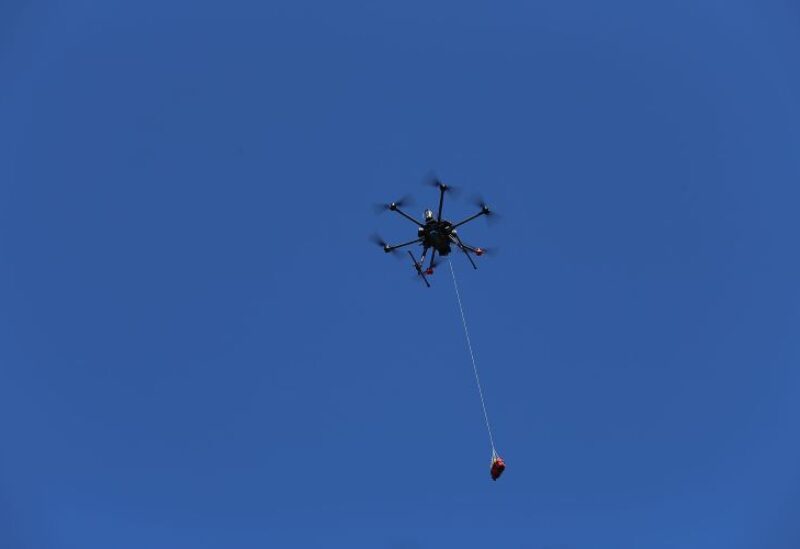
Everdrone says its defibrillator delivery system can currently reach 200,000 residents in Sweden
Saving lives is frequently a race against the clock. Diagnosis, treatment, and recovery from disease or accident need prompt attention and competence to assure patients’ effective rehabilitation.
In difficult-to-reach or under-resourced places, the inability to get critical medical assistance swiftly is sometimes the most significant obstacle to life.
While this inaccessibility gap is often an issue for mostly rural areas and developing nations, the recent life-saving measures provided by a drone to a man in Sweden highlight the broader need for creative technology to offer vital care.
The 71-year-old man slumped in his driveway in Trollhattan after suffering a heart attack while shoveling snow in December. Mustafa Ali, a doctor on his way to work at the local hospital, noticed the man and hurried to aid him.
“Because the guy had no pulse, I began CPR [cardiopulmonary resuscitation] while urging another bystander to dial 112 [the Swedish emergency number],” Dr Ali explained. “A few minutes later, I noticed something soaring above my head.” It was a defibrillator-equipped drone!”
After alerting the emergency services, a drone was used to deliver an automatic external defibrillator to the patient’s side in less than three minutes. It was then utilized to restart the victim’s heart while they awaited an ambulance — the first time a life was saved in this manner.
“I can’t express how grateful I am for this amazing technology and the quick arrival of the defibrillator. I wouldn’t be here if it weren’t for the drone “explained the patient, who has since recovered completely and is now back at home.
Everdrone, a company that specializes in autonomous drone solutions, developed and operated the defibrillator, and the company’s chief executive, Mats Sallstrom, said the delivery was a “excellent real-world example” of how cutting-edge technology could reduce the time required to provide life-saving treatment.
The company’s test and development centers are in the Swedish city of Gothenburg, and they specialize on civil applications, mainly in health care and emergency response.
The operations are funded by Vinnova, Swelife, and Medtech4Health, and are carried out in close conjunction with the Karolinska Institute’s Centre for Resuscitation Science, SOS Alarm, and Region Vastra Gotaland.
Everdrone claims that the drone technology has been scientifically shown to reduce emergency response times, with the complete study published in the European Heart Journal.
Every year, around 275,000 people in Europe and 350,000 in the United States suffer from out-of-hospital cardiac arrests, with almost seven in ten of them happening at home where automated external defibrillators are not available.
Because ambulances sometimes take a long time to get at the patient, the odds of survival drop by 7% to 10% for every minute that passes after the patient falls, placing the survival rate for persons who have out-of-hospital cardiac arrests at 10%.
Everdrone sees its “unique” airborne delivery service of automated external defibrillators as a “proven approach” to ensuring patients receive life-saving care as quickly as possible.
According to the firm, its delivery service can presently reach 200,000 people in Sweden. It plans to expand to other European sites in 2022.